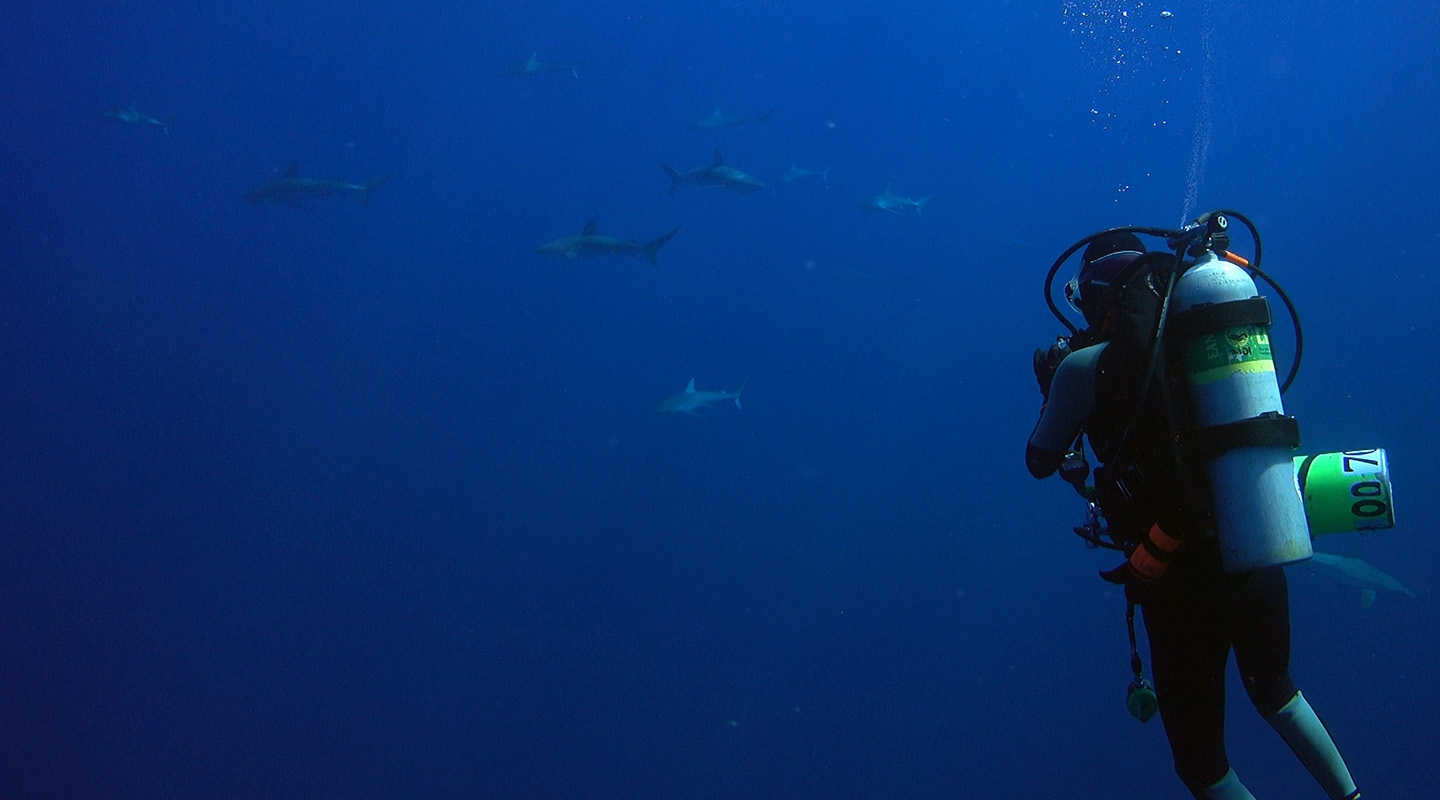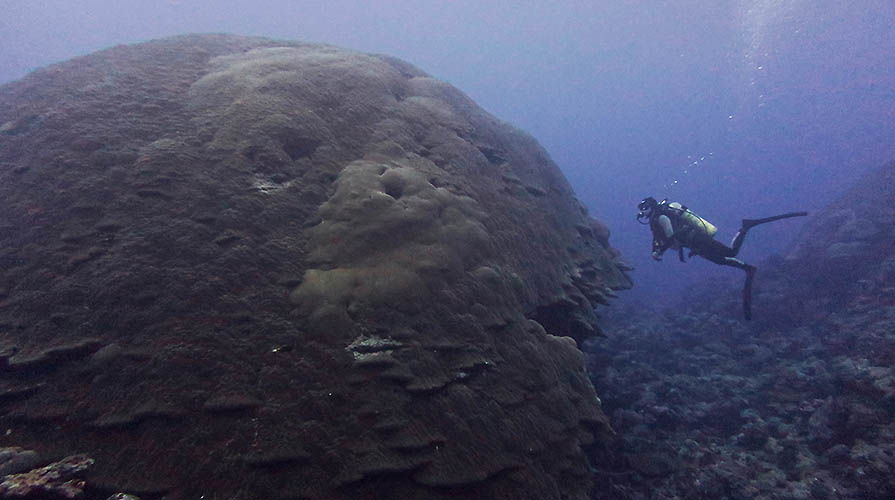Morgan Winston built on her undergraduate experience working with the Vantuna Research Group to pursue a master’s in marine biology and a career in coral reef preservation. She even has a marine species named after her.
How did you develop your interest in marine biology at Oxy?
Throughout my time as an undergraduate, I worked as a research assistant for the Vantuna Research Group, where I was engaged in research focused on community dynamics and reef fish life history within the rocky reefs and kelp forests of the Southern California Bight. My experience working with the VRG was a catalyst that inspired to continue my career in marine biology past the undergraduate level.
Share the highlights of what you’ve been doing since graduation.
After I graduated from Oxy, I moved to Oahu to pursue my MSc in Marine Biology at the University of Hawaii at Manoa. My graduate studies focused on intraspecific variability in the life history of endemic coral reef fish between photic and mesophotic depths in the central North Pacific Ocean.
Since earning my master’s in 2016, I’ve worked for state and federal agencies in Hawaii, where I've been involved in a variety of projects ranging from invasive algae removal to coral restoration. My current position is with the Ecosystem Sciences Division at the National Oceanic and Atmospheric Administration’s (NOAA) Pacific Islands Fisheries Science Center. Our studies focus on questions concerning the distribution, abundance, and condition of corals and coral reefs in selected areas across the tropical and subtropical Pacific under U.S.-jurisdiction.
How did Occidental transform your life/prepare you for your career?
The opportunity get outside of the classroom—and gain real scientific research experience—was definitely the catalyst that inspired me to continue my studies in marine biology beyond the undergraduate level, which ultimately led me to my current work at NOAA. I always felt really supported by my community of professors and classmates; I believe that is something that makes Oxy a special place for so many people.
What are you most proud of having done since you graduated?
While I am pretty stoked about the three-month research cruise I was on last summer surveying coral reef ecosystems in American Samoa and the Pacific Remote Islands (read about the expedition on our blog and storymap), I am most proud of my accidental discovery of a new species! It is a parasitic isopod (OK, not so glamorous) now named Elthusa winstoni that I found in the gills of a fish that I was dissecting.
If you were to give current Oxy students professional advice, what would you say?
Engage in the opportunities that Oxy offers—don't be afraid to reach out to research groups on campus and get involved! You can also volunteer for programs outside of Oxy, so take advantage of being in Los Angeles. I volunteered for the L.A. Waterkeeper and the California Science Center. Also, participate in Oxy's excellent study abroad program if you can. It enabled me to travel to Australia, Costa Rica, and Panama, where I gained an interest in studying coral reef systems.
Tell us about an experience you had at Oxy that you will always remember.
My first dive in the kelp forests of Palos Verdes with the VRG—it was SO COLD! Besides quickly losing sensation in my hands and feet, I remember feeling so excited to finally have the chance to get underwater and amazed by the complex and beautiful environment around me. Over time I got used to the chilly ocean temperatures in southern California, but now that I'm so used to diving in Hawaii I don't think I would last long back there!
Top photo: Morgan is shown diving with sharks at the Papahānaumokuākea Marine National Monument, located in the northwestern Hawaiian Islands. This is the largest marine protected area in the world, she was there in 2015 as a research diver on a NOAA cruise in graduate school.
Inside photo: Morgan is pictured diving next to a coral colony lovingly named "Big Momma." Located in American Samoa near the island of Ta'u, it is the largest known coral colony in the world and is more than 500 years old. Morgan was there in 2018 doing coral surveys on a research cruise with NOAA.


